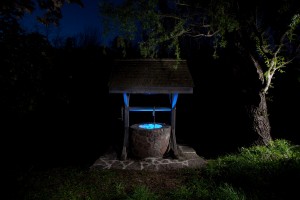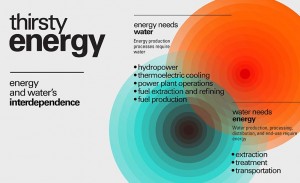Since its enactment, the Clean Water Act of 1972 has led to significant and continued improvement in the quality of the nation’s waters. By in large, it has been a successful piece of legislation. Among other things, it has lead to stronger silt control legislation for construction sites and has made factories clean up their waste before it is put back into the water cycle.
The current law does rightly limit government authority over folks private property, and, as always, some government agencies have made attempts to overstep these boundaries. The US Supreme Court has made at least 2 decisions that Federal Agencies exceeded the authority granted them by this act. Rather than accept the High Court’s decisions in these cases, some advocates have decided to change the language of this law.
 In 2009, I published an article about a couple of bills that had moved through the US House and Senate that would have changed the word “navigable water” to “waters of the United States”. Although it may be well-meaning, from an environmental protection standpoint, it is a dangerous proposition- since the act says that the US Government OWNS the navigable water- this change actually gives the US Government ownership of EVERY drop of water that falls on US soil. This would include that water that is contained in the soil (and therefore the soil itsself) and could easily be used to force land owners to stop harvesting rain or restrict use of private wells, if not out-and-out remove owners from the land they live on. This is why many private property advocacy organizations as well as farmers across the nation were so outspoken against this idea back then, and their efforts killed the respective bills.
In 2009, I published an article about a couple of bills that had moved through the US House and Senate that would have changed the word “navigable water” to “waters of the United States”. Although it may be well-meaning, from an environmental protection standpoint, it is a dangerous proposition- since the act says that the US Government OWNS the navigable water- this change actually gives the US Government ownership of EVERY drop of water that falls on US soil. This would include that water that is contained in the soil (and therefore the soil itsself) and could easily be used to force land owners to stop harvesting rain or restrict use of private wells, if not out-and-out remove owners from the land they live on. This is why many private property advocacy organizations as well as farmers across the nation were so outspoken against this idea back then, and their efforts killed the respective bills.
Today, the EPA is asking for the same change, and they are enlisting all sorts of well-meaning folks for help. Here in Georgia, where I help operate a small farm, we are members of Georgia Organics, an organization which provides advocacy and support for farms of all size who are interested in sustainable and natural farming practices. Georgia Organics publishes contact information for all its member farms.
We recently got a message from a young man representing an organization called Environmental Georgia asking us to sign a “food producers petition for clean streams in Georgia”. It is a petition affirming the dangerous change in wording that is now proposed by the EPA.
Small farmers, well-owners, rain harvesters, and other responsible landowners are on the right side of this issue- we understand that the water resources we have is all we get, and we do whatever we can to protect and preserve it. I would be terribly upset if a public or private utility contractor were allowed to drill wells on my property without my consent, and remove that water to sell to its customers.
I don’t suppose Environmental Georgia really wants the federal government to take land from private citizens. I believe these folks are honestly trying to do what is best for the environment, but as with so many pieces of legislation, unintended consequences are not always considered. We hope Environmental Georgia and other similar groups across the country will think about all the known and well-documented problems with this revision and help push the EPA to find a way to protect wetlands without leaving an open loophole for corporate interests to use their lobbying power to take resources away from us- the small farmers of America.




Here is the email we received from Environment Georgia, as well as my response:
_______
_____________